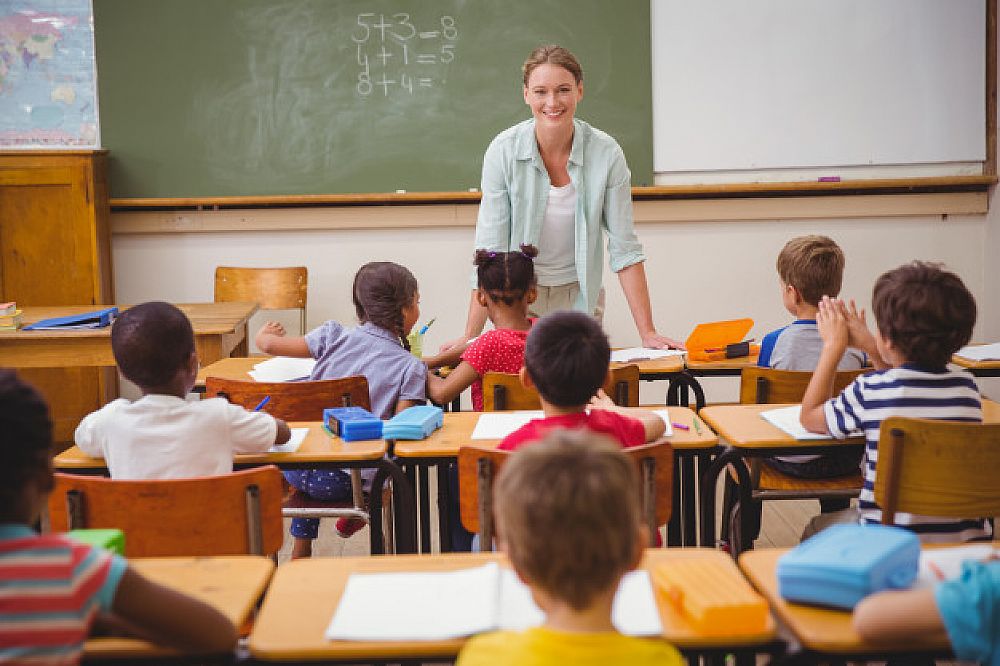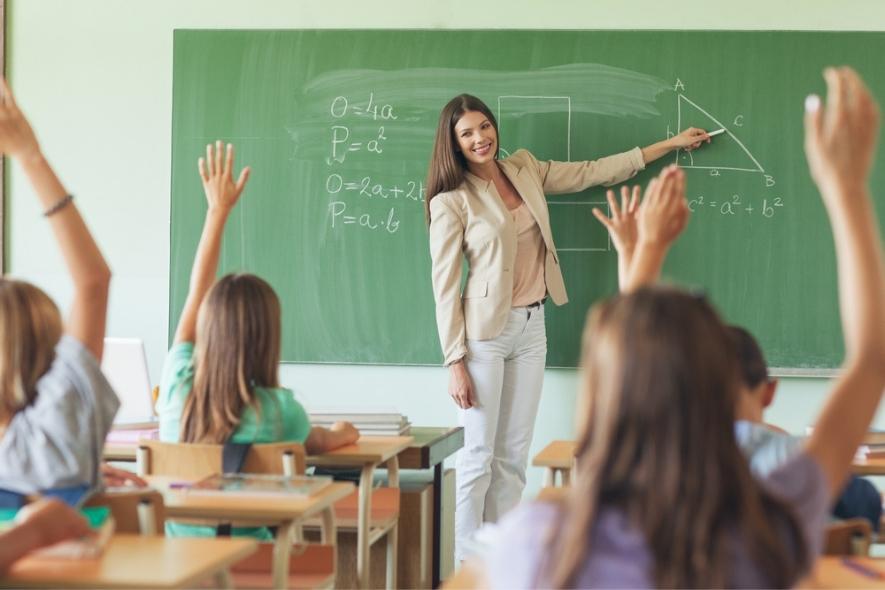Effective Primary Science Tuition Singapore for Better Exam Results
Effective Primary Science Tuition Singapore for Better Exam Results
Blog Article
A Comprehensive Overview to the Different Understanding Methods in Primary Science Instruction
The exploration of diverse learning approaches in main science direction provides a possibility for teachers to improve trainee engagement and understanding dramatically. By analyzing hands-on knowing techniques, inquiry-based strategies, and collective strategies, we can determine reliable practices that provide to different discovering styles.

Hands-On Learning Methods
Hands-on discovering strategies play a critical function in key science guideline, engaging pupils in energetic exploration and experimentation. These methods allow students to connect straight with sensations and products, cultivating a deeper understanding of clinical principles. By using manipulatives, versions, and real-life experiments, teachers develop a setting where trainees can observe, hypothesize, and check their concepts.
Such strategies not just enhance comprehension yet also cultivate essential reasoning and analytical skills. When pupils take part in activities like building basic makers, planting seeds, or conducting chemical reactions, they are encouraged to ask questions and look for responses with their own monitorings. This experiential method aids to demystify complicated scientific principles, making them a lot more relatable and accessible.
Additionally, hands-on knowing advertises partnership among peers, as trainees typically operate in teams to carry out experiments or share findings. This team effort not just enriches their discovering experience but additionally establishes essential social abilities. Eventually, incorporating hands-on methods in primary science instruction fosters a long-lasting love of knowing and curiosity concerning the all-natural world, laying a strong foundation for future scholastic quests in science and past.
Inquiry-Based Understanding
Inquiry-based knowing is an educational method that motivates students to ask inquiries, examine phenomena, and create their own understanding of scientific ideas. This technique shifts the emphasis from standard teacher-led guideline to a much more student-centered experience, where students take the initiative in their instructional trip. By cultivating curiosity, inquiry-based learning advertises deeper interaction with the material, enabling trainees to check out topics in a purposeful context.
In practice, this strategy often involves hands-on experiments, observations, and crucial thinking tasks that straighten carefully with the scientific approach. Students are motivated to create theories, style examinations, and analyze information, which grows important skills such as logical and analytical thinking. The role of the instructor in this structure is to facilitate exploration, directing trainees via the questions procedure while urging independent thought and collaboration.
In addition, inquiry-based knowing nurtures a sense of possession over the understanding process, inspiring trainees to pursue knowledge actively. This approach not just improves understanding of scientific concepts but likewise cultivates a long-lasting love for learning, equipping pupils with the abilities necessary to navigate a progressively complex world.
Collaborative Learning Approaches
Collective knowing strategies empower pupils to involve in purposeful interactions with peers, promoting a common responsibility for their academic results. In main scientific research guideline, these approaches urge learners to collaborate to discover clinical ideas, fix troubles, and perform experiments (primary science tuition Singapore). By taking part in group tasks, pupils can leverage varied viewpoints, permitting for richer understanding and retention of clinical expertise
One secret element of joint learning is the focus on communication abilities. Students should verbalize their ideas, pay attention proactively to others, and negotiate ideas, every one of which are crucial proficiencies in both scholastic and real-world contexts. This social communication not just boosts their understanding of Discover More scientific concepts yet likewise promotes synergy and problem resolution abilities.
When students see the worth of their contributions within a team, they are extra most likely to take possession of their discovering trip. Generally, integrating collective learning strategies in primary science guideline grows a dynamic learning setting that prepares pupils for future scholastic and social difficulties.
Innovation Combination in Science
The integration of innovation in key scientific research instruction enhances learning experiences by giving ingenious tools and resources that support various mentor methods, consisting of collective discovering - primary science tuition Singapore. The use of electronic platforms, simulations, and interactive applications enables students to involve deeply with clinical ideas, helping with an extra hands-on approach to understanding
Online labs, for example, allow learners to carry out experiments securely and effectively, promoting inquiry-based understanding. These tools can imitate real-world scientific scenarios, enabling trainees to visualize complex procedures that would certainly be difficult to reproduce in a conventional class setup. Innovation fosters interaction and partnership amongst pupils, as they can share searchings for and function with each other on projects via visit this site right here on-line platforms.
Furthermore, multimedia presentations and academic videos can enrich lessons by providing to varied knowing styles, making abstract concepts a lot more available. Data evaluation tools also encourage pupils to accumulate and analyze scientific information, strengthening important assuming skills. Generally, the tactical unification of modern technology in primary science guideline not just enhances involvement but likewise prepares pupils for a technologically advanced culture, equipping them with important abilities for future clinical ventures.
Distinguished Direction Strategies
Distinguished instruction approaches are vital for dealing with the diverse demands of learners in main science education. These approaches allow instructors to customize their mentor methods to accommodate differing capacities, passions, and discovering designs within the class. By utilizing separated guideline, instructors can create an inclusive setting that cultivates involvement and improves understanding of clinical ideas.
One effective technique is to use versatile grouping, which permits students to collaborate with peers at comparable ability levels or with differing viewpoints. This method urges peer knowing and advertises important thinking. Additionally, offering options in projects can encourage students, enabling them to pick projects that reverberate with their passions while still fulfilling curricular purposes.
Moreover, integrating tiered jobs is an additional beneficial strategy. By making jobs with differing degrees of intricacy, teachers can guarantee that all trainees are suitably challenged, no matter their efficiency. Making use of formative evaluations to assess comprehending further allows instructors to readjust their instructional methods dynamically, ensuring that each student obtains the support they need.
Ultimately, implementing set apart instruction strategies in primary scientific research education not only enhances trainee discovering end results however also grows an interest for science, preparing pupils for future scholastic searches.

Conclusion
In recap, effective main science direction requires a diverse method that encompasses hands-on discovering, inquiry-based methods, and collective strategies. The integration of modern technology and separated instruction even more accommodates varied knowing styles, promoting a setting for exploration and important thinking. By carrying out these approaches, teachers can enhance trainee engagement and understanding, ultimately nurturing a long-lasting interest for scientific research and questions. Such detailed methods are necessary for establishing educated and interested future scientists.
The exploration of diverse understanding approaches in key science direction presents a chance for teachers to enhance trainee interaction and understanding have a peek at this website dramatically.Hands-on understanding techniques play an essential duty in main science direction, involving students in energetic exploration and experimentation.Inquiry-based knowing is an educational method that urges students to ask inquiries, investigate sensations, and build their very own understanding of clinical principles.Collective learning approaches encourage pupils to involve in purposeful interactions with peers, cultivating a shared obligation for their academic results. Generally, incorporating joint understanding techniques in key science guideline grows a vibrant knowing setting that prepares pupils for future scholastic and social difficulties.
Report this page